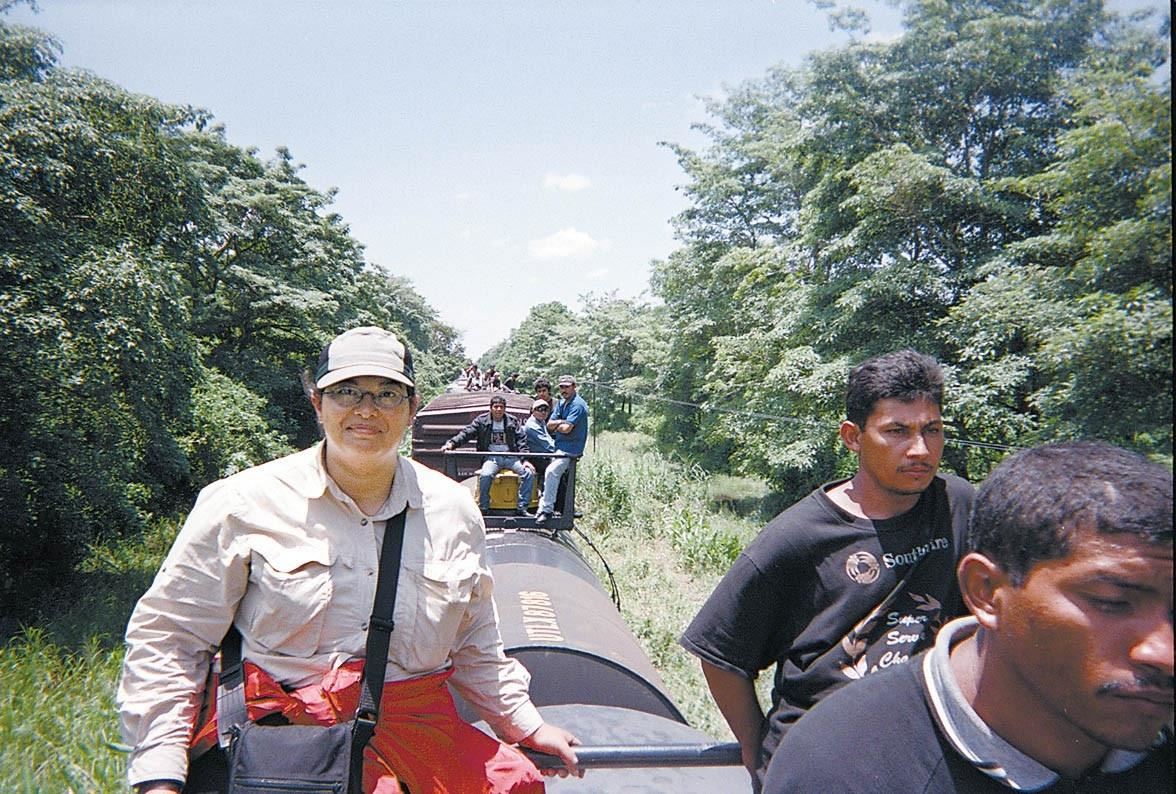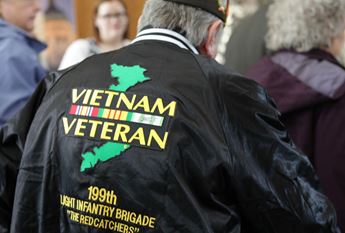

Meet Sonia Nazario
August 20, 2018
What's your Kansas story?
My family came to Kansas in 1965 as immigrants from Argentina. It was our second trip to the U.S.; in 1960, my family came to Madison Wisconsin where my father did post-doctoral work at the University of Wisconsin - Madison in biochemistry. I was born in Wisconsin that year. Of four children in my family, I’m the only one born in the U.S.
"Like many migrants today, my family came seeking opportunities."
My father was a biochemist doing early genetic mapping who taught at the University of Kansas Medical Center. The military in Argentina was also exerting increasing control over the universities there, which was another factor in coming.
We arrived to a Kansas that was very homogenous and had few immigrants. In our quest to find other newcomers, people in similar circumstances, my mother joined a group called Mini Mundo—small world. Migrants from Africa, Latin America, would gather in a potluck and bring their favorite dish from back home. Of course, today, Kansas has many more migrants.
For my family, Kansas was a safe haven after a century of fleeing persecution. My father’s family fled Christian persecution in Syria in the 1920s to go to Argentina. My mother fled Poland as a young girl for Argentina; family members who didn’t flee were killed in Auschwitz. When my father died suddenly when I was 13, my mother took the family back to live in Argentina, but it was as the so-called dirty war was beginning in that country, where the military would take power and “disappear” up to 30,000 people. I lived in terror every day there for more than a year.
"Again, my family returned to Kansas, where we found opportunity and safety."
My sister became a family doctor in Overland Park. One brother is a programmer/computer specialist at American Century Investments in Kansas City.
Describe what you do now.
What inspires you about what you do? I write about social and social justice issues in a compelling way, through narratives that take readers on a ride but also educate them about some of the most polarizing and complex issues of our time, like immigration. I have four jobs! I am writing a second book about social justice issues for Random House. I serve on three nonprofit boards, such as Kids In Need of Defense, www.supportkind.org, started by Microsoft and Angelina Jolie [We have recruited 31,000 pro bono lawyers across the country to represent unaccompanied immigrant children in court, so they don’t go to court alone]. I speak about the immigration issue and journalism at colleges and conferences around the U.S. and the world [my book, Enrique’s Journey, is likely the most read book about immigrants in the U.S., and has been selected by 100 universities as a common read]. And, I am a contributing opinion writer for the New York Times. I am driven every morning when I see injustice and I feel that through my reporting and storytelling I can engage people in a unique way on something that's important, get them to read about it, and understand it deeply, and maybe even act to help make the problem I describe better.
Do you believe ideas can change the world? How? Why?
I have seen this time and again. I get emails every day from students, readers of Enrique’s Journey, who tell me: I was raised racist, anti-immigrant. I hated all immigrants. It’s what my parents taught me. They FORCED me to read your book in high school or college!
"By putting me in the shoes of a migrant, you changed the way I feel and see this issue."
That’s priceless. That keeps me going, even in these turbulent times.
Tell us about your talk in Kansas City on October 4: "Telling Readers the Truth Means Being an Advocate, Too"
Readers forced me to become an activist. They didn’t understand when I told them: here’s the problem, you figure out the solution, you get involved to fix it! How could I urge others to mobilize when I had a platform but refused to get involved myself?
"In an era where readers face a barrage of information, sometimes we must step up and simply say what’s what."
I have covered immigration for decades as a daily reporter, and came to know the immigration issue well. I know who benefits and who is harmed by unlawful migration. After writing many narrative stories and a book about immigrants, immigration has, for me, transformed from a topic of interest to a compelling understanding of one of the most polarizing issues of our time. Being an advocate comes with risks, but sometimes it’s a leap we simply must make to keep doing the job conscientiously. Come listen, and share what you think too.
About Sonia Nazario
Sonia Nazario is an award-winning journalist whose stories have tackled some of this country’s most intractable problems -- hunger, drug addiction, immigration -- and have won some of the most prestigious journalism and book awards, including two Pulitzer Prizes. She is best known for "Enrique's Journey," her story of a Honduran boy’s struggle to find his mother in the U.S. Published as a series in the Los Angeles Times, "Enrique's Journey" won the Pulitzer Prize for feature writing in 2003. It was turned into a book by Random House and became a national bestseller.
Her recent humanitarian efforts to get lawyers for unaccompanied migrant children led to her selection as the 2015 Don and Arvonne Fraser Human Rights Award recipient by the Advocates for Human Rights. She also was named a 2015 Champion of Children by First Focus and a 2015 Golden Door award winner by HIAS Pennsylvania. In 2016, the American Immigration Council gave her the American Heritage Award. Also in 2016, the Houston Peace & Justice Center honored her with their National Peacemaker Award.
Nazario, who grew up in Kansas and in Argentina, has written extensively from Latin America and about Latinos in the United States. She has been named among the most influential Latinos by Hispanic Business Magazine and a “trendsetter” by Hispanic Magazine. In 2012 Columbia Journalism Review named Nazario among “40 women who changed the media business in the past 40.” In 2018, Nazario was named a contributing opinion writer for the New York Times.
She is a graduate of Williams College and has a master’s degree in Latin American studies from the University of California, Berkeley. She has honorary doctorates from Mount St. Mary’s College and Whittier College. She began her career at the Wall Street Journal, and later joined the Los Angeles Times. She is now at work on her second book.



